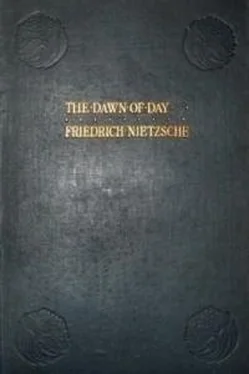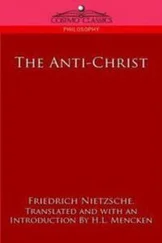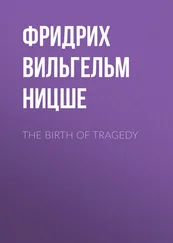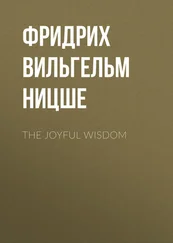What, for the rest, may be the signification of such a sudden, unreasonable, and irresistible revolution, such a change from the depths of misery into the heights of happiness? (might it be a disguised epilepsy?) This should at all events be considered by alienists, who have frequent opportunities of observing similar “miracles”—for example, the mania of murder or suicide. The relatively “more pleasant consequences” in the case of the Christian make no important difference.
88.
LUTHER, THE GREAT BENEFACTOR.—Luther’s most important result is the suspicion which he awakened against the saints and the entire Christian vita contemplativa ; only since his day has an un–Christian vita contemplativa again become possible in Europe, only since then has contempt for laymen and worldly activity ceased. Luther continued to be an honest miner’s son even after he had been shut up in a monastery, and there, for lack of other depths and “borings,” he descended into himself, and bored terrifying and dark passages through his own depths—finally coming to recognise that an introspective and saintly life was impossible to him, and that his innate “activity” in body and soul would end by being his ruin. For a long time, too long, indeed, he endeavoured to find the way to holiness through castigations; but at length he made up his mind, and said to himself: “There is no real vita contemplativa ! We have been deceived. The saints were no better than the rest of us.” This was truly a rustic way of gaining one’s case; but for the Germans of that period it was the only proper way. How edified they felt when they could read in their Lutheran catechism: “Apart from the Ten Commandments there is no work which could find favour in the eyes of God—these much–boasted spiritual works of the saints are purely imaginary!”
89.
DOUBT AS SIN.—Christianity has done all it possibly could to draw a circle round itself, and has even gone so far as to declare doubt itself to be a sin. We are to be precipitated into faith by a miracle, without the help of reason, after which we are to float in it as the clearest and least equivocal of elements—a mere glance at some solid ground, the thought that we exist for some purpose other than floating, the least movement of our amphibious nature: all this is a sin! Let it be noted that, following this decision, the proofs and demonstration of the faith, and all meditations upon its origin, are prohibited as sinful. Christianity wants blindness and frenzy and an eternal swan–song above the waves under which reason has been drowned!
90.
EGOISM VERSUS EGOISM.—How many are there who still come to the conclusion: “Life would be intolerable were there no God!” Or, as is said in idealistic circles: “Life would be intolerable if its ethical signification were lacking.” Hence there must be a God—or an ethical signification of existence! In reality the case stands thus: He who is accustomed to conceptions of this sort does not desire a life without them, hence these conceptions are necessary for him and his preservation—but what a presumption it is to assert that everything necessary for my preservation must exist in reality ! As if my preservation were really necessary! What if others held the contrary opinion? if they did not care to live under the conditions of these two articles of faith, and did not regard life as worth living if they were realised!—And that is the present position of affairs.
91.
THE HONESTY OF GOD.—An omniscient and omnipotent God who does not even take care that His intentions shall be understood by His creatures—could He be a God of goodness? A God, who, for thousands of years, has permitted innumerable doubts and scruples to continue unchecked as if they were of no importance in the salvation of mankind, and who, nevertheless, announces the most dreadful consequences for any one who mistakes his truth? Would he not be a cruel god if, being himself in possession of the truth, he could calmly contemplate mankind, in a state of miserable torment, worrying its mind as to what was truth?
Perhaps, however, he really is a God of goodness, and was unable to express Himself more clearly? Perhaps he lacked intelligence enough for this? Or eloquence? All the worse! For in such a case he may have been deceived himself in regard to what he calls his “truth,” and may not be far from being another “poor, deceived devil!” Must he not therefore experience all the torments of hell at seeing His creatures suffering so much here below—and even more, suffering through all eternity—when he himself can neither advise nor help them, except as a deaf and dumb person, who makes all kinds of equivocal signs when his child or his dog is threatened with the most fearful danger? A distressed believer who argues thus might be pardoned if his pity for the suffering God were greater than his pity for his “neighbours”; for they are his neighbours no longer if that most solitary and primeval being is also the greatest sufferer and stands most in need of consolation.
Every religion shows some traits of the fact that it owes its origin to a state of human intellectuality which was as yet too young and immature: they all make light of the necessity for speaking the truth: as yet they know nothing of the duty of God , the duty of being clear and truthful in His communications with men. No one was more eloquent than Pascal in speaking of the “hidden God” and the reasons why He had to keep Himself hidden, all of which indicates clearly enough that Pascal himself could never make his mind easy on this point: but he speaks with such confidence that one is led to imagine that he must have been let into the secret at some time or other. He seemed to have some idea that the deus absconditus bore a few slight traces of immorality; and he felt too much ashamed and afraid of acknowledging this to himself: consequently, like a man who is afraid, he spoke as loudly as he could.
92.
AT THE DEATH–BED OF CHRISTIANITY.—All truly active men now do without inward Christianity, and the most moderate and thoughtful men of the intellectual middle classes possess only a kind of modified Christianity; that is, a peculiarly simplified Christianity. A God who, in his love, ordains everything so that it may be best for us, a God who gives us our virtue and our happiness and then takes them away from us, so that everything at length goes on smoothly and there is no reason left why we should take life ill or grumble about it: in short, resignation and modesty raised to the rank of divinities—that is the best and most lifelike remnant of Christianity now left to us. It must be remembered, however, that in this way Christianity has developed into a soft moralism : instead of “God, freedom, and immortality,” we have now a kind of benevolence and honest sentiments, and the belief that, in the entire universe, benevolence and honest sentiments will finally prevail: this is the euthanasia of Christianity.
93.
WHAT IS TRUTH?—Who will not be pleased with the conclusions which the faithful take such delight in coming to?—“Science cannot be true; for it denies God. Hence it does not come from God; and consequently it cannot be true—for God is truth.” It is not the deduction but the premise which is fallacious. What if God were not exactly truth, and if this were proved? And if he were instead the vanity, the desire for power, the ambitions, the fear, and the enraptured and terrified folly of mankind?
94.
REMEDY FOR THE DISPLEASED.—Even Paul already believed that some sacrifice was necessary to take away the deep displeasure which God experienced concerning sin: and ever since then Christians have never ceased to vent the ill–humour which they felt with themselves upon some victim or another—whether it was “the world,” or “history,” or “reason,” or joy, or the tranquillity of other men—something good, no matter what, had to die for their sins (even if only in effigie )!
Читать дальше











